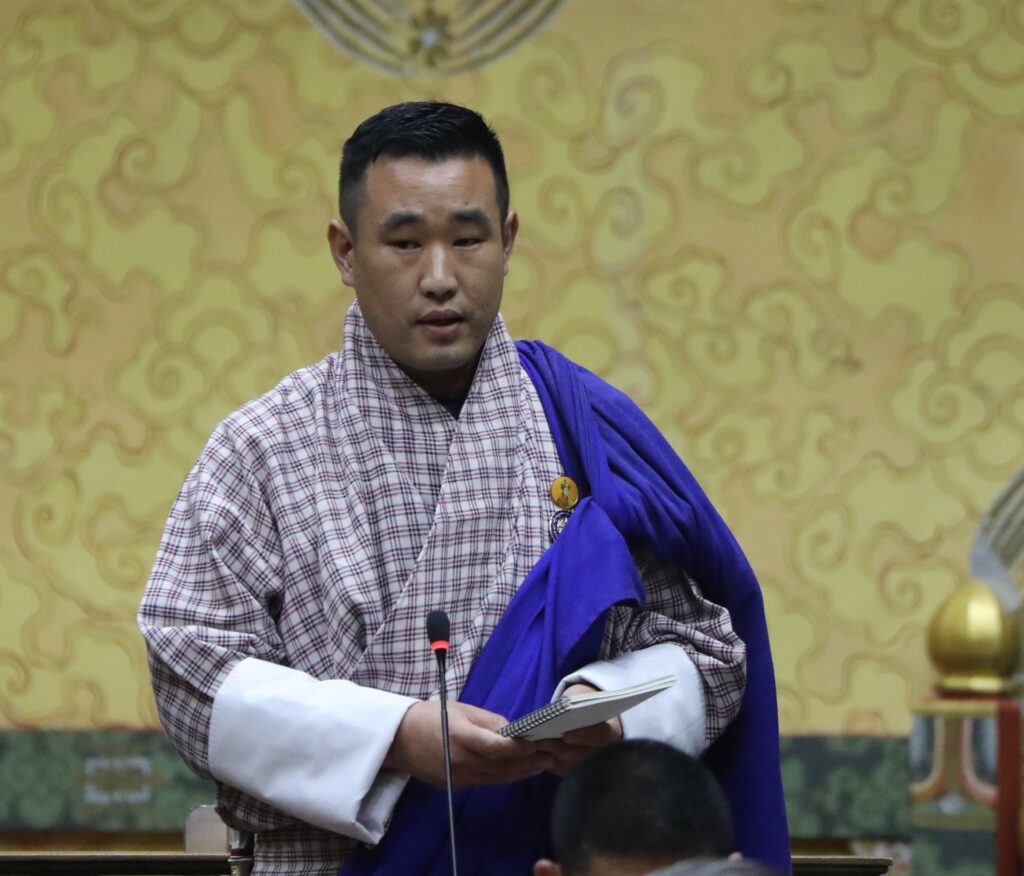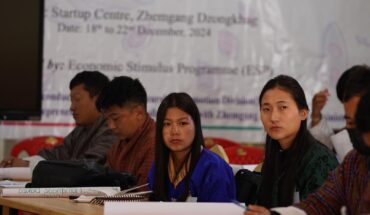
The existing law is largely exclusive of those working in private and corporate sectors
TIL BDR GHALLEY
Thimphu
Sonam Tashi, Member of Parliament for Lamgong-Wangchang, raised concerns in the National Assembly regarding the inadequate maternity and paternity leave provisions in private and corporate sectors.
The MP questioned the Ministry of Industry, Commerce and Employment (MoICE) on why many private employers continue to offer only two to three months of maternity leave, significantly less than the six months granted to civil servants and employees of Druk Holding and Investments (DHI)-owned companies.
The Labour and Employment Act of 2007 mandates a minimum of two months maternity leave for women in Bhutan’s private and corporate sectors.
Many private companies have voluntarily extended this to three months, with only a few, such as Bhutan Postal Corporation Limited, offering six months of paid maternity leave.
However, this contrasts with the civil service and state-owned enterprises, where maternity leave is standardized at six months following a 2018 government directive aimed at improving maternal and child health outcomes.
Paternity leave in Bhutan provides fathers with 10 days of paid leave upon the birth of a child. If the mother dies during childbirth or within six months thereafter, the father may take the remainder of the maternity leave until the child reaches six months.
However, paternity leave policies in the private sector remain less comprehensive and inconsistently applied, indicating a need for policy enhancement.
Minister Namgyal Dorji of MoICE explained that Internal Service Rules (ISRs) are the primary mechanism companies use to formalize employee benefits, including parental leave.
To date, 1,439 ISRs have been endorsed by the Department of Labour (DoL) and its regional offices. These ISRs must meet or exceed the minimum legal standards those falling short are rejected.
The ISR formulation process involves consultations between employers and employees, promoting participatory policy-making and mutual ownership of workplace policies.
To address gaps in parental leave and workplace conditions, MoICE has implemented multiple oversight mechanisms. These include regular workplace inspections over 1,500 conducted during 2023–2024 to review parental leave policies and overall working conditions.
The ministry also operates an online complaint and feedback portal, allowing employees, employers, and the public to report issues or suggest improvements regarding workplace policies.
Recognizing the shortage of childcare facilities, especially in urban areas, MoICE has launched a pilot program to deploy Foreign Childcare Givers (FCCs), approving 327 FCCs since 20th October, 2024.
Additionally, 189 Foreign Domestic Workers (FDWs) have been approved primarily to assist with the care of elderly, chronically ill, and persons with disabilities.
Further, the ministry encourages medium and large enterprises, particularly in industrial and urban zones, to establish workplace crèches aligned with guidelines from the National Commission for Women and Children.
These childcare centres are expected to be managed by trained early childhood care professionals to ensure a secure and nurturing environment.
Section 114 of the Labour and Employment Act mandate nursing mothers the right to paid breaks every four hours to nurse their children after returning from maternity leave.
The Act also ensures an eight-hour workday, weekly days off, and access to various types of paid leave, including maternity, paternity, annual, casual, and sick leave.
Female civil servants are entitled to extend their maternity leave until their infant reaches six months and may combine maternity leave with other forms of leave, including government holidays and weekly days off.
Maternity leave is counted as part of active service for HR actions such as promotion and leave accrual.
While extended maternity leave benefits in the public sector aim to support maternal and child health, concerns persist about the impact on private sector profitability and employment rates.
During a 2016 parliamentary debate, the Labour Minister noted that longer maternity leave could increase unemployment in the private sector, which is profit-driven.
The Opposition Leader at the time urged the government to conduct proper research before implementing six months maternity leave for civil servants, citing potential disadvantages such as unemployment and financial strain on private companies.
MoICE’s efforts through ISR enforcement, workplace inspections, and childcare support initiatives represent important steps toward bridging these gaps.
However, further policy development, increased resource allocation, and stakeholder engagement are essential to ensure equitable parental leave and childcare provisions across all sectors.





